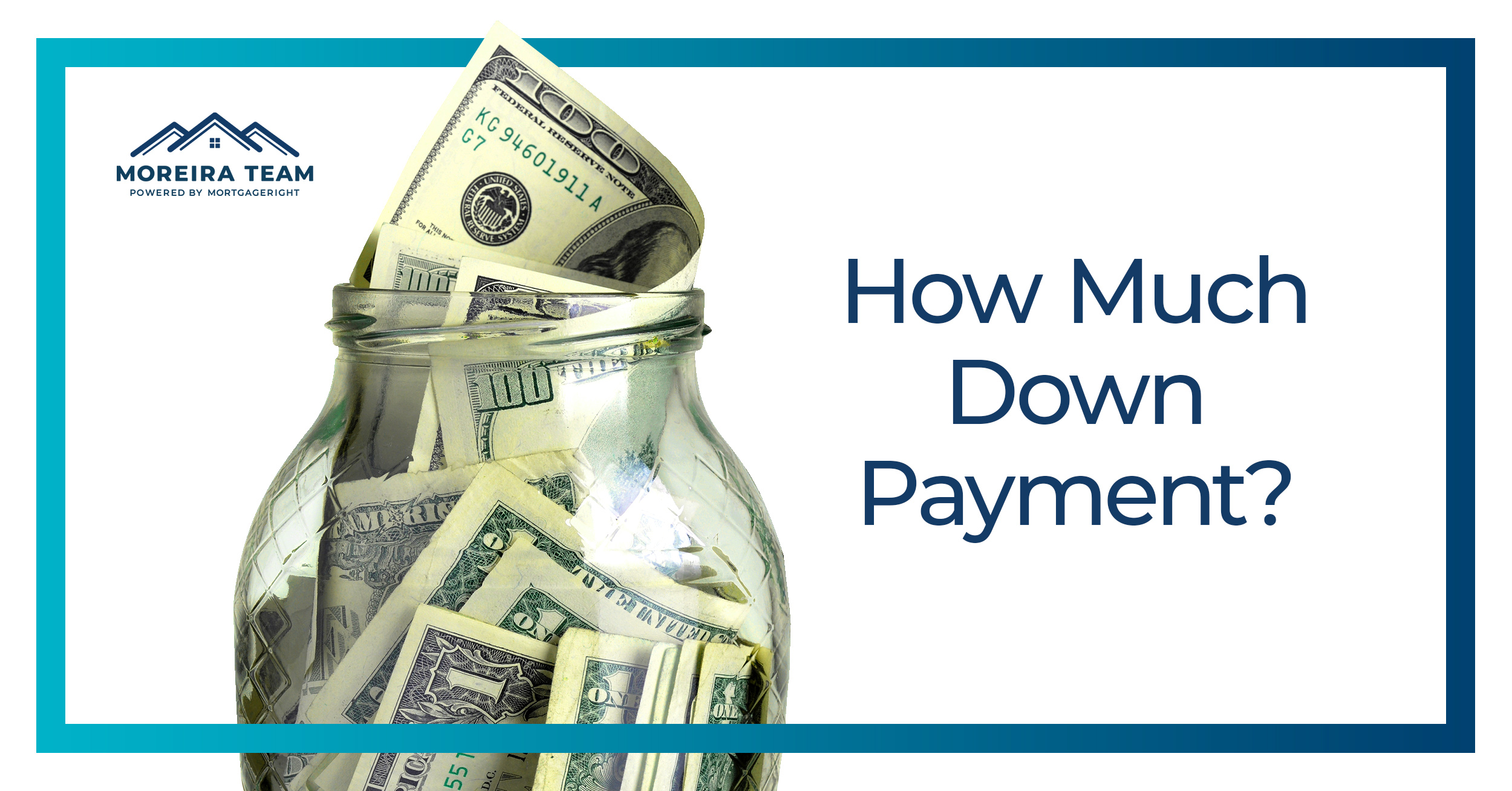
In this article
- How Much Down Payment Do I Need to Buy a House?
- Put your numbers into a Down Payment Calculator. Enter your purchase price and down payment amount and see what loans may be best for your situation.
- Earnest Deposit vs. Down Payment
- How Much is the Earnest Deposit?
- Who Gets the Earnest Deposit?
- Ways to Come Up With Your Down Payment
- Personal Savings and Assets
- Roth IRA
- Traditional IRA
- Tap Into Your 401k
- A Gift from Family
How Much Down Payment Do I Need to Buy a House?
A down payment is the amount of money you put down toward a home. For a conventional loan a down payment may be 20%, and can also be as little as 3.5% or even 0% with some loan programs. For example, a home that costs $220,000, your down payment amount could be $44,000 at 20% or as little as $7,700 at 3.5%. For homebuyers looking for the lowest monthly payment, the objective is to put down as much as possible. Simply put, the higher your down payment, the less you’ll have to borrow, which translates to less of your paycheck going towards your monthly mortgage bill.
If you decide to put less than 20% down you’ll have to take on lender’s mortgage insurance or Private Mortgage Insurance, commonly known as PMI that protects the bank against you defaulting on your loan. Mortgage Insurance premiums are based on the amount of your down payment and your qualifying credit score.
Put your numbers into a Down Payment Calculator. Enter your purchase price and down payment amount and see what loans may be best for your situation.
Your mortgage lender has access to three different types of mortgage insurance options for you to choose from:
- It can be paid up front as lump sum
- Paid monthly as part of your payment
- Priced into your interest rate (Lender Paid Mortgage Insurance)
Another important detail to be aware of are the closing costs you will be responsible for covering in addition to your down payment. These fees can range anywhere from 2% – 4% of the home you are purchasing. Luckily in many cases your realtor will negotiate the closing costs to be covered by the seller or at least a portion to help offset the cost.
Earnest Deposit vs. Down Payment
The earnest deposit is the amount you put down when securing a contract on a home. This amount is deposited in escrow and will go towards your down payment. The objective of the deposit is to show good faith when making an offer to the seller.
How Much is the Earnest Deposit?
This amount varies based on the sales price and strength of the offer. The initial deposit is provided during the negotiation stage of the home purchase (for example, $500 – $2,500+).
Who Gets the Earnest Deposit?
The deposit check is usually made out to the realtor’s brokerage. Should your offer be accepted, the check is deposited and held “in escrow”, until the closing of the deal. Upon closing, the deposit amount is deducted from your down payment, and you pay the difference.
Ways to Come Up With Your Down Payment
There are a number of sources people draw on for their payment down. Here are a few of them below to help:
Personal Savings and Assets
Consider setting aside small amounts from your salary each month in a high yield savings account, set-up a savings bond so that it matures on the target date that you would like to make a down payment on a new home. If you expect an IRS refund this year you can set aside that money towards your payment down. You might even decide to sell off things that have value that you have no use for or can live without for awhile.
Roth IRA
Pulling money from a Roth IRA may cost you the least amount in taxes. This is because you can withdraw contributions at any time without penalty or tax. Especially for first time home buyers. Be sure to check with your CPA for the most updated rules on this.
Traditional IRA
Only consider this if you’re withdrawing from a Traditional IRA if you’re ok with paying the taxes and it is your only option. The hitch here is that this withdrawal can be taxed as ordinary income.
Tap Into Your 401k
Another approach is to take a loan out on your 401k. The hitch – taking on the burden of another loan will affect your borrowing power with the lender and you may not be able to qualify for the range of mortgage amount you initially had in mind. Allow yourself plenty of time for the processing of this should you decide to use this option.
A Gift from Family
Family members might be willing to give you a gift towards your down payment for a house. In this case, your lender will request written proof indicating the source of funds and concise details on who the family member is that is donating this money to you.

